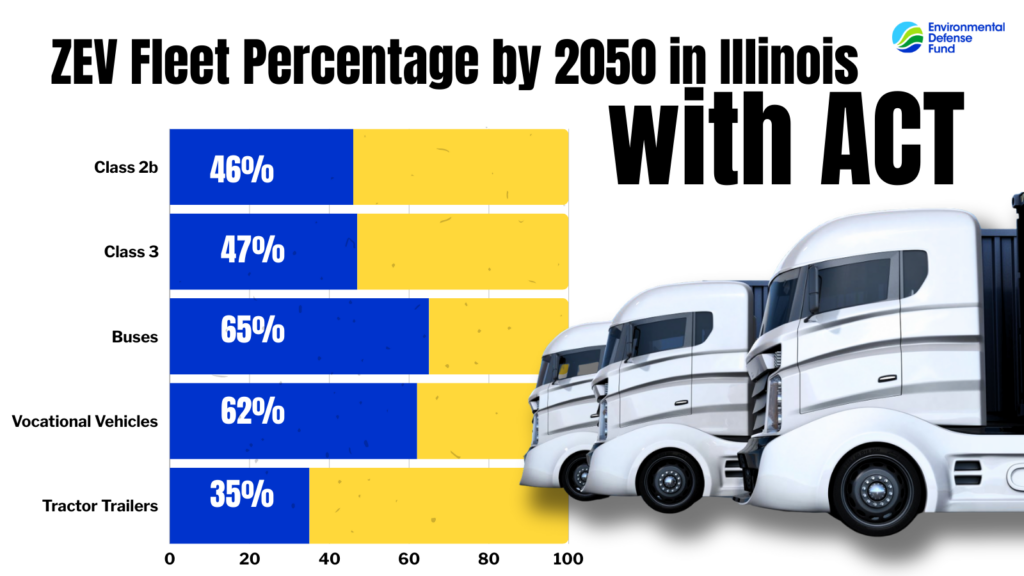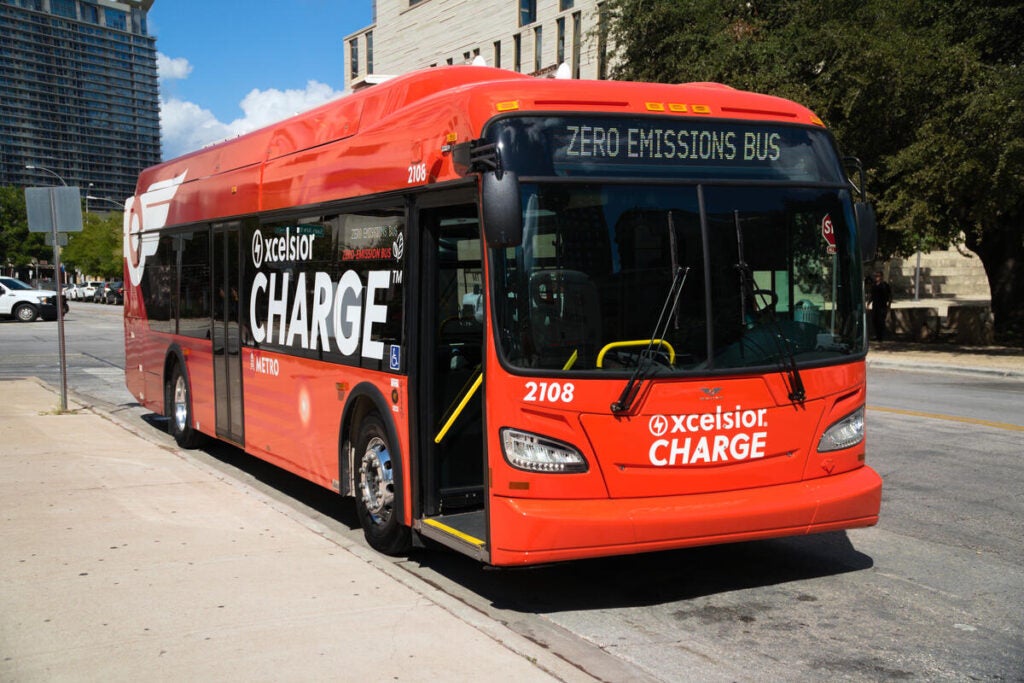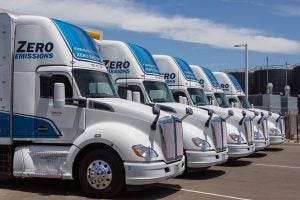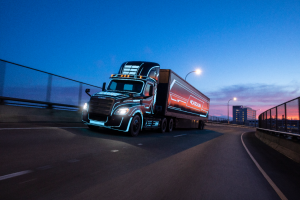This blog was co-authored by José Acosta-Córdova, Senior Transportation Policy Analyst at LVEJO
Transportation is a big issue in Illinois, accounting for almost one-third of the state’s greenhouse gas emissions — the sector responsible for the most GHG emissions in the state. Medium- and heavy-duty vehicles, such as delivery vans, transit buses and large tractor-trailers are a disproportionate contributor of greenhouse gas emissions, but also other emissions like nitrogen oxide and particulate matter that directly harm the health of Illinoisans. Despite making up less than 10% of on-road vehicles, these trucks and buses are responsible for 67% of NOx and 59% of PM.
Advocates in the state have long been calling for Gov. Pritzker to move forward on key policies to advance zero-emission trucks and buses. Chief among them is the Advanced Clean Trucks regulation, which requires manufacturers to sell an increasing percentage of zero-emission trucks and school buses.















